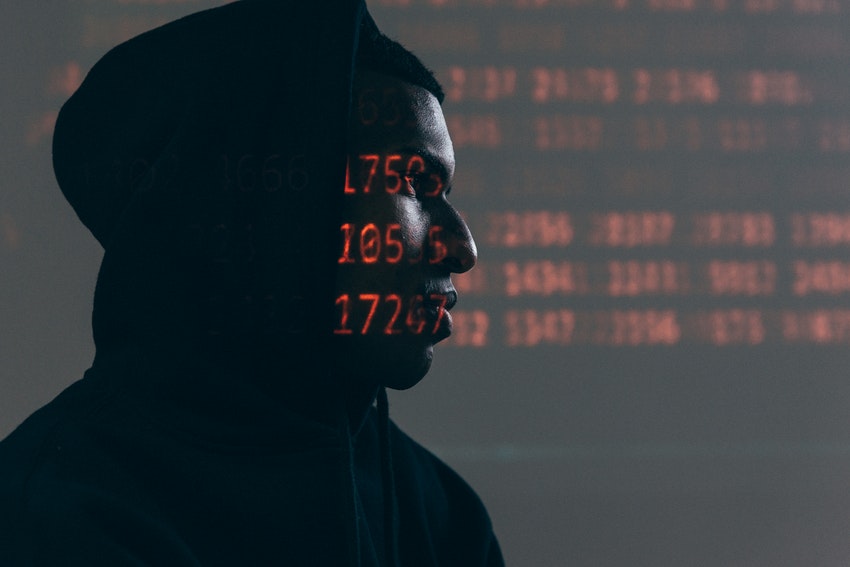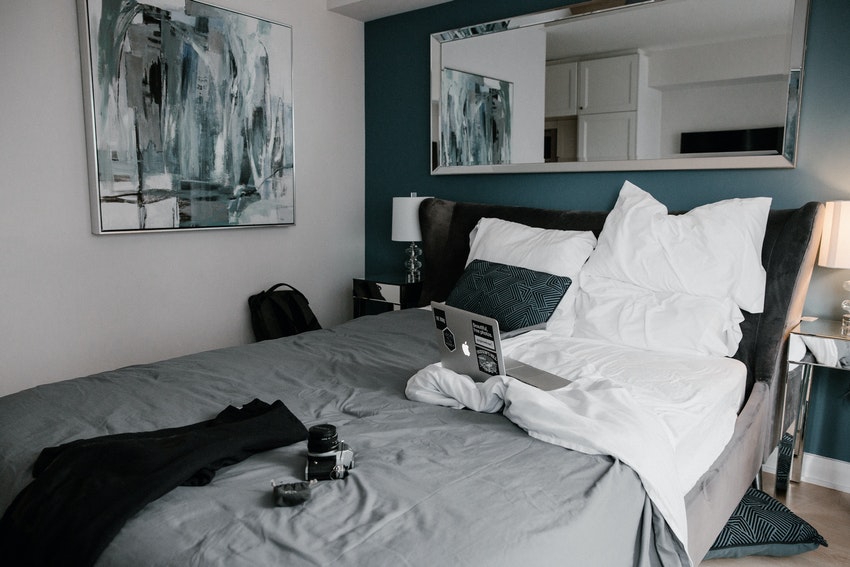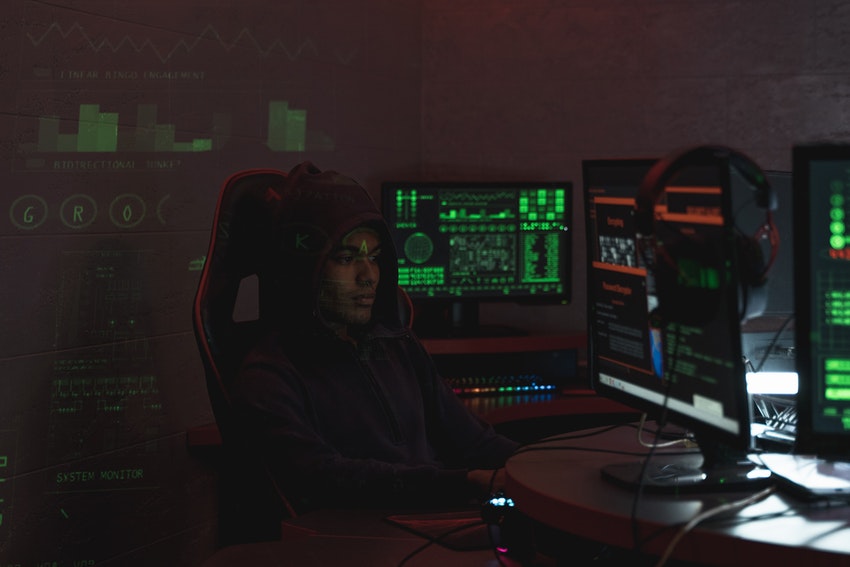It goes without saying that cyber crimes have always been a challenge for various large industries since the introduction of computers.

For hotel cyber security, it will remain a great challenge in the future: new hacking techniques are adopted day by day, and it’s nearly impossible to predict and confront them all.
The recent research published by Research Gate shows that the appraised cost of cybercrimes will approximately reach $6 trillion per year on average after 2021.
This is why more and more organizations become concerned about their security level: they’re investing in improving their digital safety and boosting their resistance to hacking attacks and data breaches.
The hospitality industry is not an exception: hotel security systems are one of the main priorities to develop for providing maximum comfort for the guests and ensure their secure staying as well.
Today we’ll cover what hotel cyber security is, the main issues hotel cyber security counters with, and also the most popular information security tools it employs to enhance the safety of their data and systems.
The State Of Cybersecurity in Hospitality
First of all, cybersecurity refers to a specific plan targeted at a company’s data protection. Most hotels are now aware of the possibility of cyber attacks aimed at stealing the clients’ personal data, internal documents, or any other information.
A well-planned strategy of improving the hotel safety and security can, in fact, minimize the risks of being hacked, thus, ensuring the data won’t be used by fraud.
But what information hackers are usually haunting in hospitality? Basically, there are various data they can benefit from, including:
- personal data of hotel’s guests
- bank card information
- employee data
- critical business information, etc
McKinsey’s best-suggested practice to improve hotel cyber security is to build a unified, integrated cyber defense that can protect the entire hotel infrastructure.

The most productive way to get started is the cyber attack assumption, after that try to build an accurate and effective strategy of building the system resistance to all the weak points discovered.
The IT experts insist on implementing an integrated defense to improve hotel security, as it can cover the most common security threats and secure the infrastructure as well.
Tools to Solve Common Cybersecurity Issues in Hospitality
One of the most essential cybersecurity recommendations for hospitality is employing the best IT technologies to get the organizations secured from a variety of common threats.
These usually include different sorts of viruses, internal attackers aimed at getting the network access, hardware theft, spoofing, unauthorized insider access, unauthorized outside attacks, and service attacks as well.
In general, the most effective protection tools and techniques used for safety and security in hospitality industry include the following:
Intrusion Detection System
This technology analyses all the events that happened in the internal network or any other system to detect suspicious activities, intrusions, and attacks.
The so-called intrusion refers to the efforts used to target the system’s confidentiality, availability, or integrity, which can result in system errors and data loss.
Intrusion detection systems can inform about the following types of attacks:
- Internet attacks (criminal connects to the system from the Internet or the outside networks)
- Authorized attacks (users authorized in the system try to find the vulnerabilities to get access to the secured information or those who misuse and abuse the privileges to get the profit).
Physical Hotel Security
This point refers to keeping all the networking equipment and computer systems updated and secure. In practice, it means not only purchasing the new equipment but also setting up limited access to it for third parties.
Hotel System Firewalls
The powerful yet effective combination of soft and hardware equipment can assist in tracking the device traffic of different computer networks, which is a must for hotel cyber security.
A hardware firewall is a device that can be attached directly to the network, while the software firewall consists of the specific program files targeted at improving the hotel Internet security and is installed on devices (computers, phones, tablets, laptops, etc).

Encryption Procedure
One of the most popular measures that can prevent data breaches and minimize the entrance of most hacking attacks is encryption. Basically, that’s a process of transforming the information so it becomes impossible to get.
For hotel security, encryption becomes a perfect method of ensuring data confidentiality, which is critical not only for the hotel’s management and service systems but also for the guests and visitors.
Biometrics
The technology of biometrics can greatly assist in the authorization procedures, as it benefits the user authentication systems and more. As a rule, the most popular biometrics systems record the physical characteristics of each individual and compare them each time during the authorization processes before providing full access to specific data stored in the system.
The main examples of the physical characteristics used for biometric technologies include voice recognition technologies, fingerprints, face, retina, or iris identifications. By implementing the biometrics form of authorization you can significantly enhance the hotel cyber security and ensure your users and the entire management system are fully protected.
Vulnerability Detecting Software
Last but not least software listed in the cybersecurity recommendations for hospitality is the vulnerability scanning software. Basically, that’s a specifically built software targeted at scanning your hotel’s systems and resources (both internal and for public use) and pointing at the possible vulnerabilities you should definitely pay attention to.
Furthermore, with the vulnerability detecting software, it becomes way easier to track the entire system performance and define which parts of the hotel security enhancement still need to be improved and what are the best practices for resolving these issues.
Access Limitations
To improve the hotel Internet security, it’s also essential to set up limited access to the critical or more vulnerable systems and resources.
By implementing the access control, you can significantly improve the authentication and authorization processes to ensure the access to the specific systems and resources will be available for a limited number of people.
Why is it so important? According to the Varonis Global Data Risk report, over 53% of companies have over 1000 sensitive files open to every employee. For hotel security, it means that after the employee password is known to the criminals, your system can be easily hacked by anyone and anytime.
Improving Cybersecurity: Protect Customers’ and Company’s Sensitive Data
According to the recent trends and effective measures to protect hotel safety and security, there are 3 key points of building the integrated cyber security infrastructure. Let’s now cover them in detail.

#1 Find Your Dedicated Team of Developers
The first step every company should start with is IT recruiting. A well-built team of IT developers can become one of the most effective ways of improving hotel Internet security.
Infrastructure groups need to always track the latest “trends and tendencies” in security, employ the most effective cyber tools and brainstorm some new ways of detecting the system’s weak points and how they can be resolved.
#2 Always Stay Focused on Security Improvement
Instead of paying a hard look only at the very first stages of security improvement, it’s critical to understand this process should be tracked permanently. So, it’s useless to make some changes to the hotel security procedures and exclude them from the priority tasks for the future.
However, organizations should create multiple scenarios to simulate the possible variants of cyberattacks for learning and practice. Furthermore, a clear understanding of each member’s responsibilities in crisis situations, as well as the plans of how to act in critical situations with the team members and public, can help to create a powerful strategy of defending the hotel Internet security.
#3 Use the Effective Security Tools
The experienced IT experts know that none of the security software, antiviruses, and other tools can ensure your hotel system is 100% secure from cyber attacks. Nevertheless, hospitality units still need to implement the most updated software and hardware for their data security.
In practice, that means dividing the process of improving the hotel cyber security into 3 phases: preparing and protection; defending and detection; responding and recovering. If one of these phases is omitted, your hotel security can become a tidbit for fraud and hackers.

Final Thoughts
To conclude, it’s almost impossible to predict the possible cyberattacks in hospitality and be 100% sure they won’t happen again.
However, with powerful solutions and effective security tools, your hotel can get ready for any sort of hacking threats and successfully confront the criminals.
Using professional custom software development for travel and hospitality can become a perfect solution to start improving your hotel cyber security, protect your system data and your guests as well.
We, at Intellectsoft, know about the importance of safety and security in the hospitality industry. Our dedicated team of developers empowers hospitality companies and their workforces with innovative solutions and approaches to ensure their successful performance online. Are you and your organization looking for some?
Talk to our best experts and find out more about hotel security solutions and how your business can start benefiting from them today!